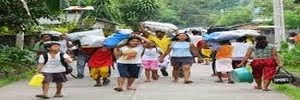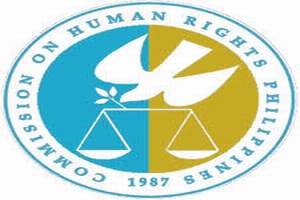
From the Website of GPH - Government of the Philippines
links: http://www.gov.ph/2015/11/26/speech-book-launch-aquino-legacy-enduring-narrative/
Speech of President Aquino at the book launch of “The Aquino Legacy: An Enduring Narrative”
Speech
of
His Excellency Benigno S. Aquino III
President of the Philippines
at the book launch of “The Aquino Legacy: An Enduring Narrative”
[Delivered at Raffles Hotel, Makati City, on November 26, 2015]
It’s a privilege to be the last speaker in any fora; it’s also a challenge. After hearing Elfren–buti maiksi; Neni–very profound, very thought-provoking, very inspiring; and even Brother Armin sa unusual introduction [laughter], siyempre, the question is ‘Ano pa kaya sasabihin ko nito? Nasabi na ang lahat.’ Anyway, let me try.
Many of you here will know that I consider myself an amateur student of history: I have always had a profound fascination with events that took place decades, or even centuries ago—especially because I believe they hold meaning for all of us in the modern day. After all, the philosopher George Santayana said, “Those who cannot remember the past are condemned to repeat it.” Corollary to that is a saying from our own culture: Ang hindi lumingon sa pinanggalingan, hindi makararating sa paroroonan. If we do not look back to or remember the past, we will never reach the future to which we aspire.
The “past” chronicled in the book we are launching today includes events significant to our country’s history: The dark days of Martial Law, for example, as well as the challenges my mother faced in restoring and safeguarding democracy after the Filipino people won the country back from the iron fist of the dictator.
Everyone here also knows that there are many different accounts of what happened. Those who were left-leaning at that point in time have documentation of their own struggles. Those who were once part of the regime have also released their version of what took place at the time. Here, we have an alternative account, one that is inextricable from the life of our family.
As you can probably tell from the title of the book alone—this volume is written with its own personal bias or viewpoint. It isn’t unique in that sense. All accounts of history are written with the personal biases and views of their authors. What is truly important is the fact that we are adding to the body of knowledge available at this point; we are making sure that no single person is able to dictate history, and consequently, influence the thinking of Filipinos. We are making sure that the whole picture is available, as opposed to what can only be called propaganda. For example, there is a particular candidate for next year’s elections, who says repeatedly that he is ready and willing to say sorry, if he only he knew what there is to apologize for. [Laughter] Upon hearing this, I really had to ask myself: When you cannot admit a mistake, are you not guaranteeing the repetition of that mistake? Perhaps this book can help to enlighten him and add to his knowledge of our past.
As Elfren himself told me last September, this book is meant to remind present generations of how many millions of Filipinos took a stand against the dictatorship. My parents are perhaps the most prominent examples of that. As such, by its very nature, this book will be an intensely personal read. In documenting the events that shaped our nation, so too does it provide a closer look at our family—at the normal lives we tried to lead in spite of extremely extraordinary circumstances, and at the lessons and principles that continue to guide us to this day. Ours was an ordinary Filipino family working hand-in-hand with other ordinary Filipinos to reclaim democracy—and I am reminded of the words of Admiral William Halsey of World War II renown: “There are no great people in this world, only great challenges which ordinary people rise to meet.”
To Elfren and Neni: As our oldest sister Ballsy has said before, you are among those who have stood by our family “sa hirap at sa ginhawa.” It is remarkable to see that you continue to work with the same love for country that you showed in the days when we were fighting for the freedom of the Philippines.
It is my sincere hope that your efforts will bear fruit: that this book will be a jumping-off point for Filipinos, especially those from the younger generation: that they will be encouraged to learn from the past, and consequently, to do their part in ensuring that the country can look forward to a far brighter future.
Perhaps before ending, to those of us who considered ourselves centrists or of a centrist ideology, which means we get the best inputs from the extremes, an often-repeated conversation is that there is a dearth of history from our point of view. Given that dearth or vacuum, there is those who were not participants or perhaps condemned to just rely on the viewpoints of those who have separate agendas, and therein lies the danger. I have to repeat: We forget the past, we are condemned to repeat the same mistakes. Hopefully, that will not come to pass. This book really makes a fine contribution to that vacuum of knowledge that should be there for the next generation.
Thank you.
GPH Website
OTHER HUMAN RIGHTS PROMOTIONS WEBSITES
PROTECTION AND PROMOTION OF HUMAN RIGHTS
-----------------------------------------------------------------------------------------------
------------------------------------------------------------
-----------------------------------

























































0 comments:
Post a Comment